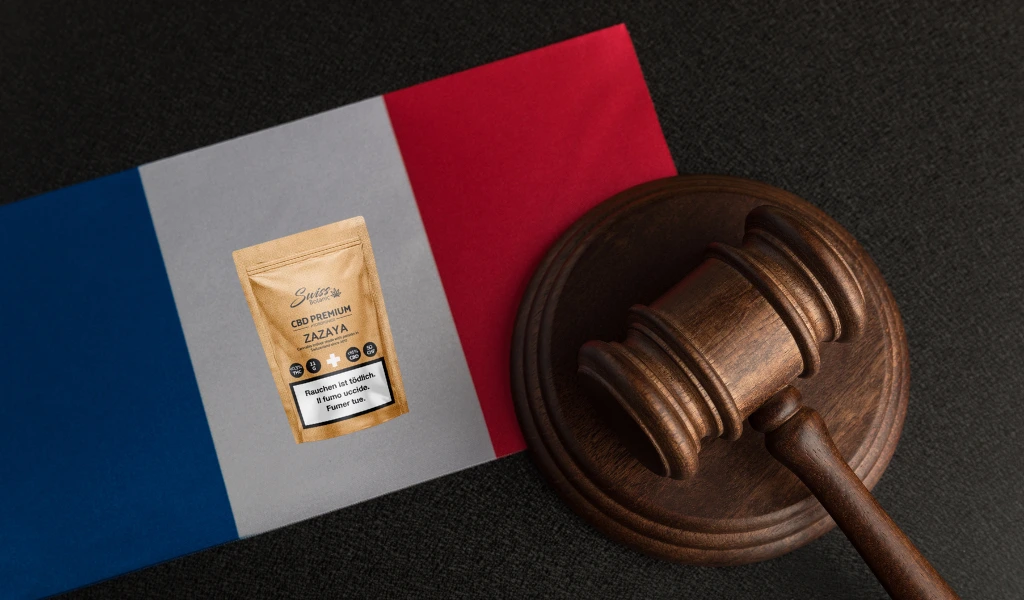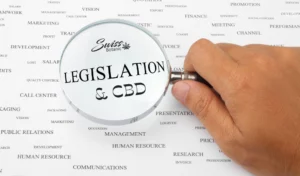History of CBD legislation in France
The evolution of legislation surrounding CBD in France has gone through some crucial phases, marking a significant paradigm shift. In the early days of understanding CBD, it was often confused with the psychoactive compounds in cannabis. This lack of awareness has led to the imposition of severe restrictions, mainly because of the stigma associated with the cannabis plant.
However, as scientific research has intensified, new light has been shed on CBD flowers. Discoveries have highlighted its potential health benefits, demonstrating its non-psychoactive nature and therapeutic properties. This triggered a process of re-examination of existing policies, as authorities became aware of the distinct nuances between psychoactive THC and CBD.
This awareness has paved the way for a more enlightened approach to CBD regulation in France. The changes in legislation have been driven by the desire to put in place a legal framework that accurately reflects the nature of CBD and its potentially beneficial applications. The new legislative impetus aims to balance the need to regulate the industry while allowing individuals to enjoy the benefits of this natural substance.
Thus, the history of CBD in France tells a dynamic story, oscillating between initial restrictive perceptions and growing recognition of the positive aspects of cannabidiol. This development is part of a global trajectory towards a better understanding of cannabinoids and their potential role in human health.
The new CBD legislation
Recent legislation on CBD in France, marked by significant adjustments, testifies to a major evolution in the understanding of this substance with unique properties.
The year 2018 was particularly noteworthy in this process. It was at this time that the law authorizing the marketing of CBD was enacted, provided that the product complied with the legal THC threshold, set at 0.2%. This decision marked a turning point, lifting some of the previous restrictions and recognizing the beneficial potential of CBD.
However, it is essential to note that legislation continued to evolve over the following years. The changes were designed to balance the need for regulation with the growing recognition of CBD’s therapeutic applications.
More recently, in 2021, new measures were introduced to further clarify regulations in France. These adjustments aim to enhance consumer safety by introducing strict quality standards for CBD products. The new laws emphasize the transparency of information provided to consumers, ensuring a better understanding of the products they can buy.
In short, the new legislation is not static, but rather dynamic, responding to scientific advances and society’s changing needs. These changes reflect an ongoing commitment to balancing industry regulation with the growing recognition of CBD’s potential benefits.
Key points of current legislation
Current CBD legislation in France is the result of an evolutionary process, marked by significant adjustments over the years. Understanding the key points of this regulation offers a deeper insight into how France approaches the complex issue of cannabidiol.
1. The 2018 Act: a major step forward
In 2018, France passed a pioneering law authorizing the marketing of CBD, marking a significant step forward in the legal recognition of the substance. However, this legalization came with strict conditions, including a maximum THC threshold of 0.2%. This was to ensure that CBD products did not have the psychotropic effects associated with cannabis.
2. Evolution in 2021: stricter quality standards
In 2021, new laws were introduced to tighten the regulations surrounding CBD. These changes have focused on improving the quality of CBD products available on the market. They have introduced strict standards of transparency and consumer information, requiring greater clarity on labels and information supplied with products with a new maximum THC level of 0.3% in CBD flowers.
3. THC levels and consumer safety
A key aspect of current legislation concerns the level of THC permitted in CBD products. The 0.3% THC threshold remains a crucial criterion for ensuring that consumers are not exposed to undesirable psychoactive effects. This testifies to the authorities’ determination to maintain strict standards to ensure consumer safety.
4. Responsible consumption and transparency
Current legislation encourages responsible consumption of CBD, with an emphasis on transparency. Manufacturers are required to provide precise information on the composition of their products, enabling consumers to make informed choices. This approach fosters public confidence in the CBD industry.
In conclusion, current CBD legislation in France is part of a dynamic context, evolving to address growing concerns while encouraging access to the potential benefits of cannabidiol. The recent changes highlight the authorities’ ongoing commitment to ensuring the safety and quality of CBD products on the French market.
Growing, importing and selling CBD
The cultivation of hemp as a primary source of CBD is now authorized in France, but under strict conditions dictated by current legislation. This regulatory development has major implications for the import and sale of CBD in the country.
Growing hemp: rigorous agricultural standards
France has paved the way for hemp cultivation, recognizing its economic potential and diverse applications, notably in the CBD industry. However, farmers must adhere to rigorous agricultural standards to guarantee high-quality hemp production. These standards include keeping THC levels below 0.3%, an essential criterion to avoid any psychoactive effects.
Importing and selling: guaranteeing compliance
The import and sale of CBD products is closely monitored to ensure compliance with the standards set by legislation. Imported products must meet the same criteria as those produced locally, creating a level playing field in the CBD market. This approach aims to protect consumers by ensuring that all available products meet quality and safety requirements.
Positive economic impact
The legalization of hemp cultivation and the regulation of the import and sale of CBD have generated positive economic repercussions. This has fostered the emergence of a dynamic CBD industry in France, creating employment opportunities, stimulating innovation and contributing to the national economy.
Restrictions on hemp flowers and leaves
Despite the authorization of hemp cultivation in France, significant restrictions remain on the plant’s flowers and leaves, which are reputed to contain higher concentrations of cannabinoids, including THC. These restrictions have been put in place to provide a precise framework for the distribution and sale of these specific plant parts.
High cannabinoid concentration: a point of regulation
Hemp flowers and leaves are known to contain higher concentrations of various cannabinoids, including THC. Since THC is the psychoactive substance in cannabis, its presence is strictly regulated to avoid any risk of undesirable or psychoactive effects in consumers.
Distribution and sales protocols
French legislation lays down specific protocols governing the distribution and sale of hemp flowers and leaves. These protocols are designed to ensure meticulous regulation, with strict standards governing the THC content permitted in these parts of the plant. Producers and retailers must comply with these standards if they are to market these products legally.
Preserving public safety
By imposing restrictions on the parts of the plant with the highest concentration of cannabinoids, the legislation aims to preserve public safety by limiting potential access to psychoactive substances. This approach aims to balance the freedom to grow hemp with the need to regulate those parts of the plant that could present risks to public health.
Authorized THC levels and product conformity
CBD is legal in France although there is a central issue: the maximum authorized THC level, set at 0.3%. This limit applies rigorously to all products derived from hemp, including those containing CBD. Companies operating in this sector are obliged to guarantee the absolute conformity of their products to comply scrupulously with French law.
Strict THC control: preserving public safety
Setting the THC level at 0.3% is in line with the desire to protect public safety by avoiding the risks associated with the consumption of psychoactive substances. This strict control is designed to set clear standards and prevent the authorized threshold from being exceeded.
CBD product compliance: corporate responsibility
Companies operating in the CBD sector have a crucial responsibility to ensure that their products comply with the THC levels defined by law. This means rigorous quality control, thorough laboratory testing and total transparency regarding the composition of their products.
Navigating the changing legal landscape
A thorough understanding of the historical background, recent legislative adjustments and specific implications on the cultivation, importation and sale of CBD enables industry players to effectively navigate the ever-changing French legal landscape. This ensures full compliance with current legislation, reinforcing the legitimacy and credibility of the CBD industry in France.
In short, understanding the historical context, recent legislative adjustments and specific implications on the cultivation, importation and sale of CBD enables industry players to effectively navigate the ever-changing French legal landscape while remaining in strict compliance with legislation.



